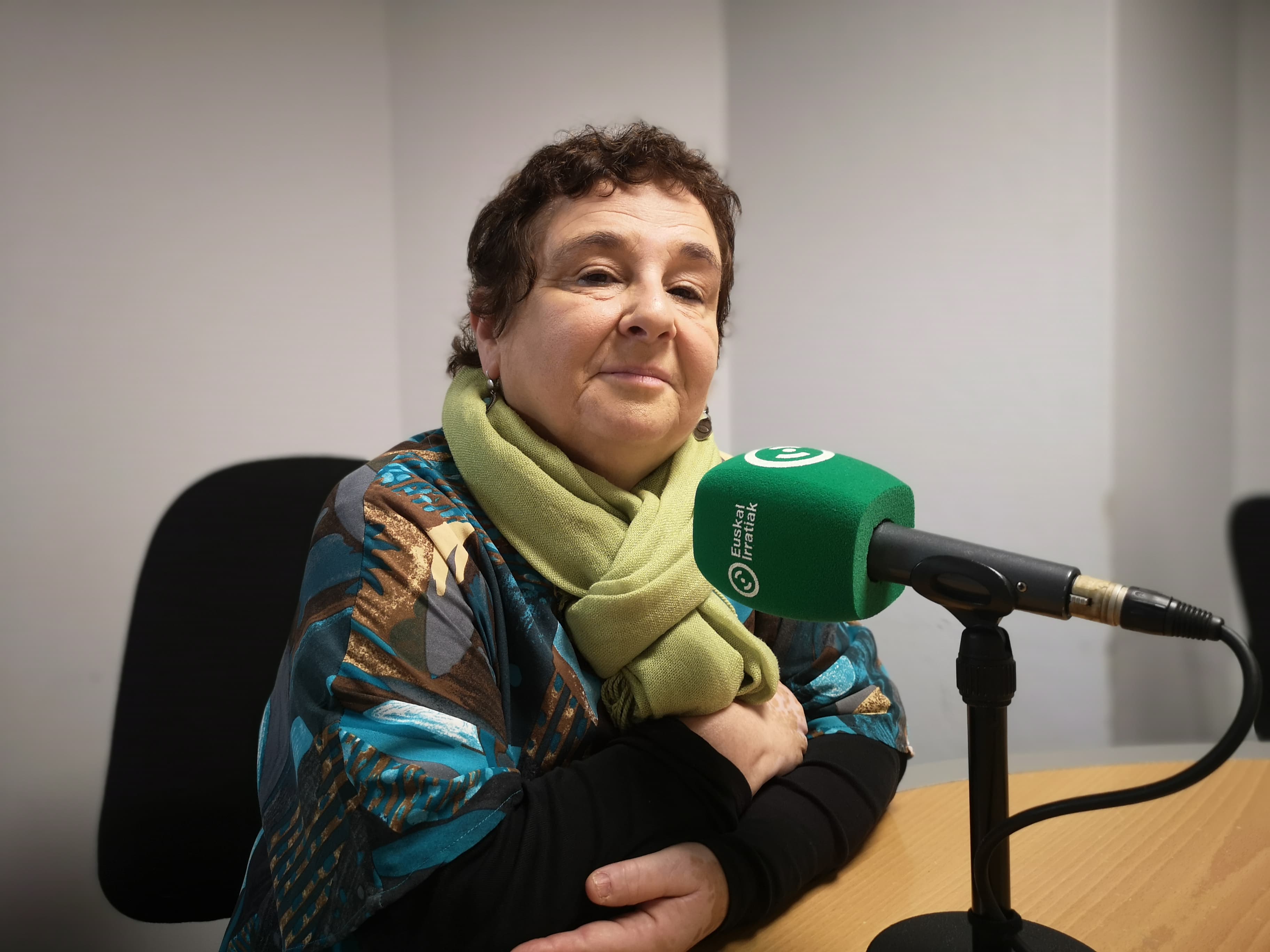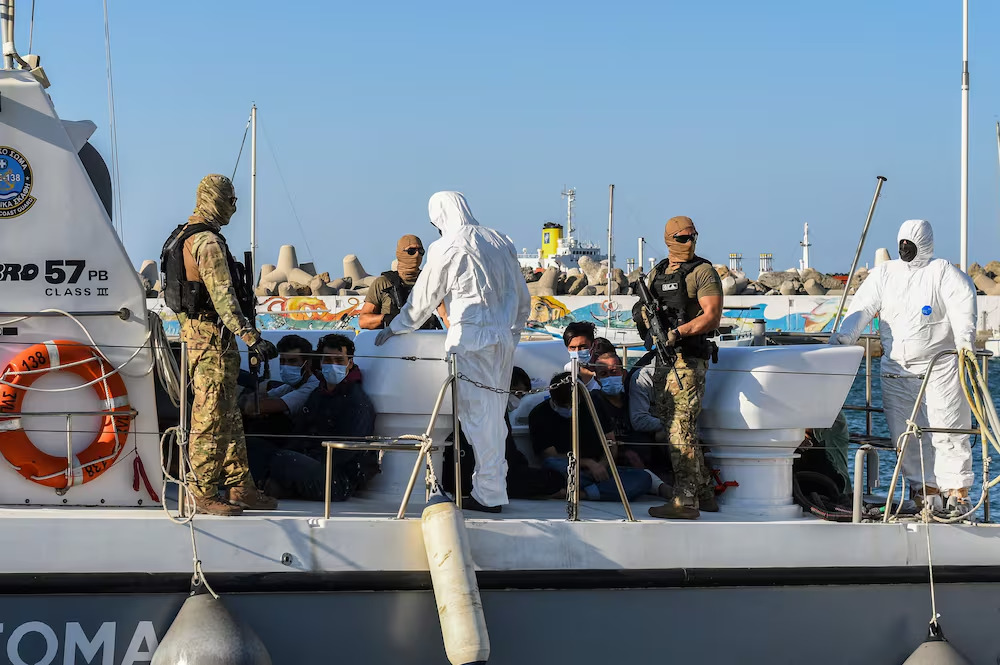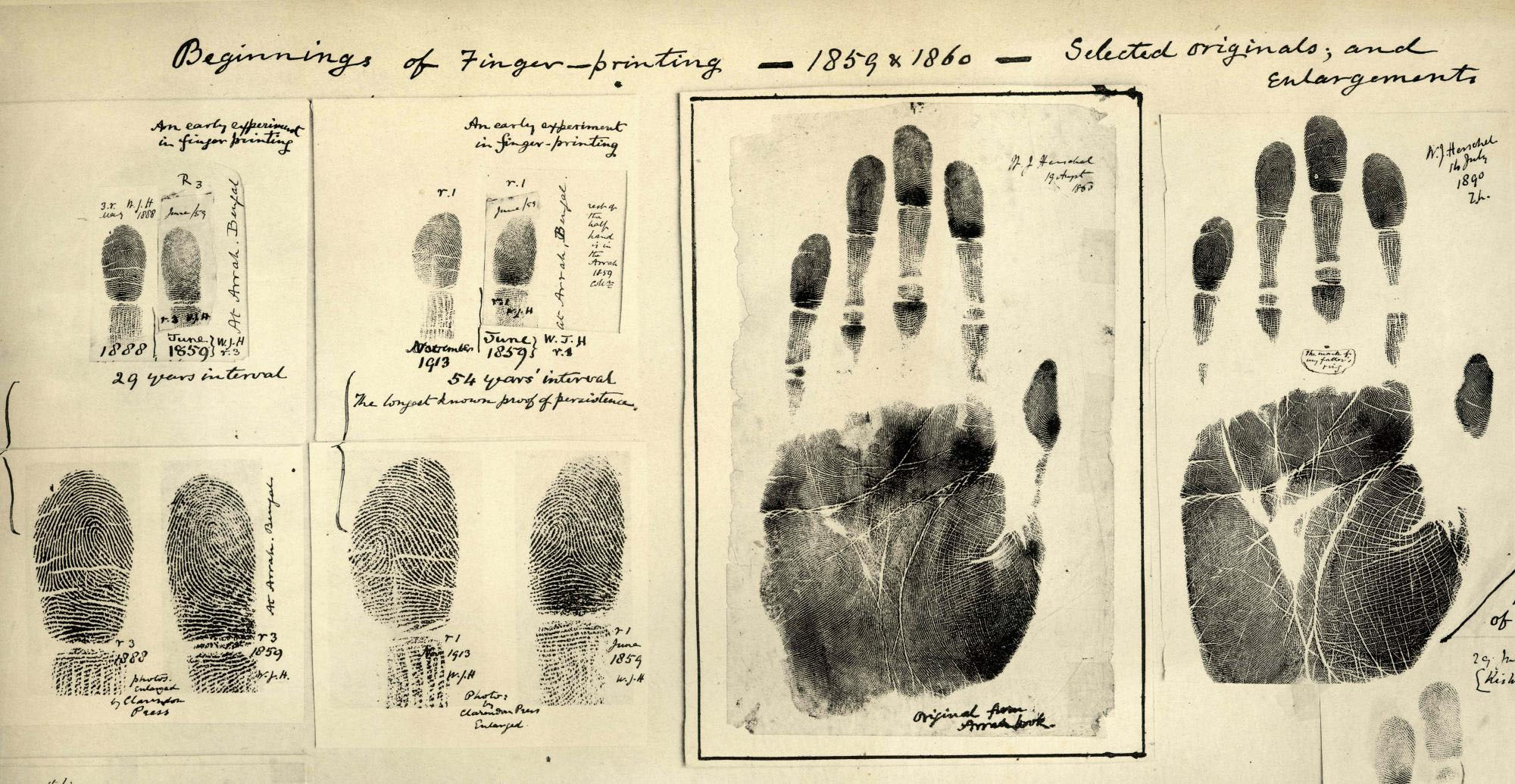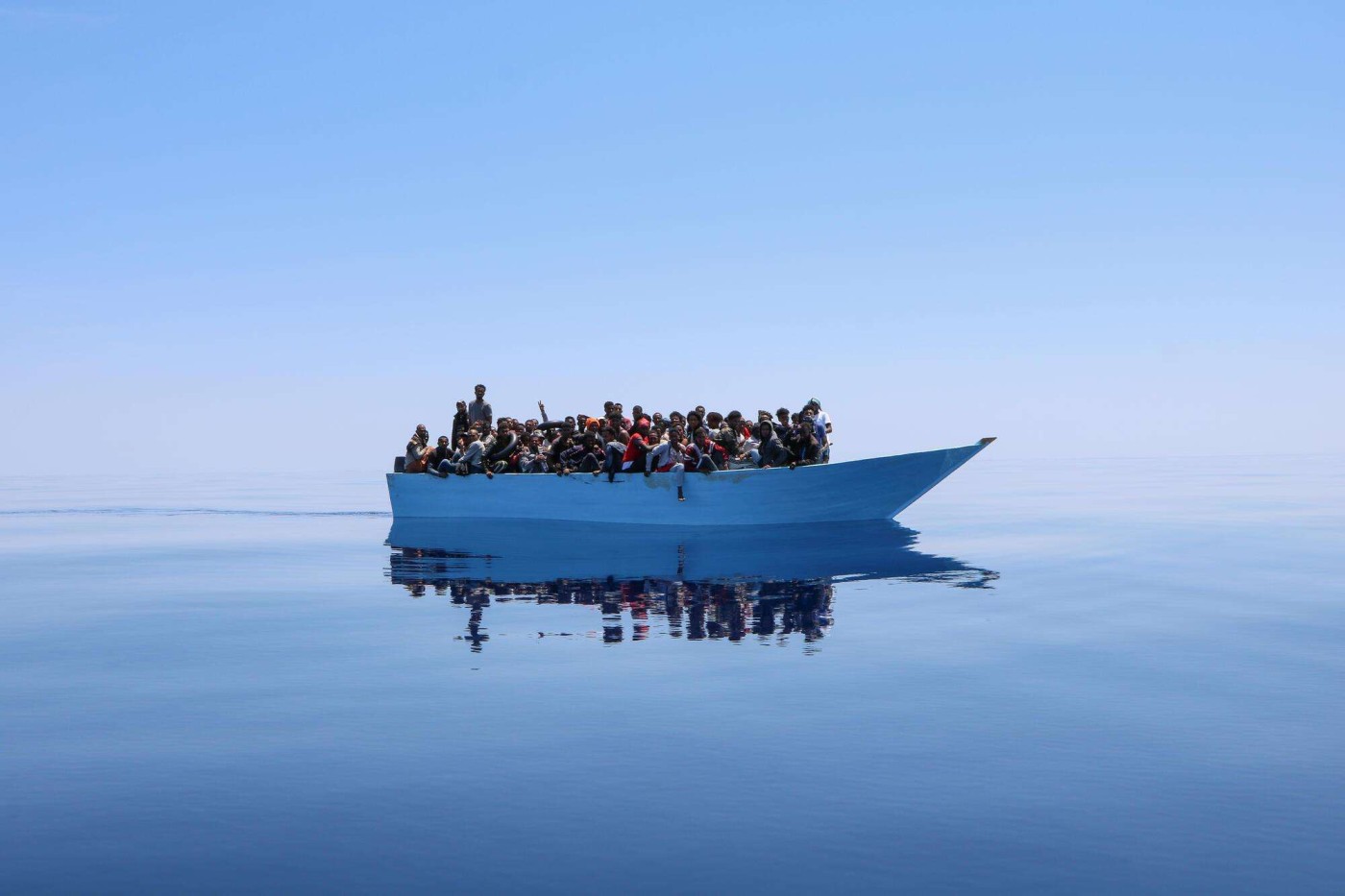"Salvini is the evil of the film, but Europe has behind it"
- The Greek island of Lesbos is the gateway to Europe for thousands of people fleeing violence near the Turkish coast. However, the door has been closed since Europe blocked borders. Today, four years after the outbreak of the refugee crisis, thousands of people remain imprisoned on the island, without moving forward or going back. Activist SC Natzab (1964, Pamplona) works there, convinced that citizenship has much to say in the face of the crisis.
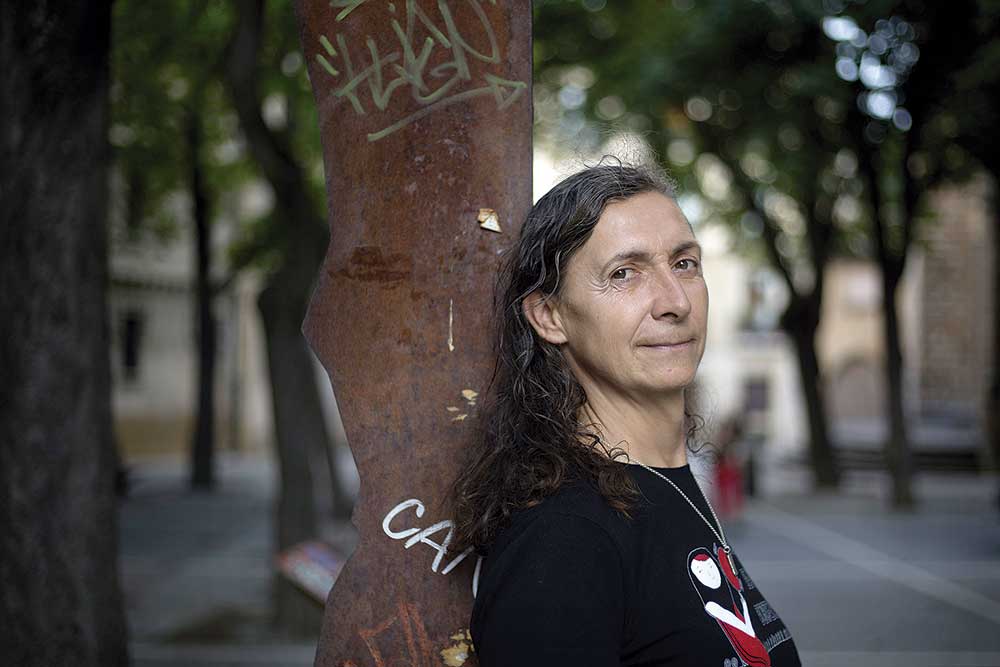
What is Lesbos today?
It's a prison full of well-known people who want to get it out of there and can't get it out. Those of us who want to stay there can leave and those who want to leave are obliged to stay there. The de Moria (Lesbos) is a concentration camp that does not deserve another name.
Has the situation changed in the three years you have been in Greece?
It's changed, it's got worse. Greece has historically been a step towards Europe: refugees entered the islands, arrived at the port of Piraeus and gave them a travel bag, and in two or three days they went to Europe. The 2015 crisis also started this way, until Europe decided to close its borders. The Moria camp was conditioned as a host camp for 3,000 people, but we reached 10,000. People have had to sleep on the ground, between fecal waters, with a unique shower for about 70-80 people. This is a concentration camp without internal surveillance and violence has taken place, as the concentration of so many people has crumbled social standards. Things are going to get worse: now the years go by to do what the formalities of the first few months were. And the new government also wants all reception centres to be closed, that is, the whole process - and we are talking about years - to be held in jail. People fleeing violence are imprisoned, without trial, and without heeding human rights.
How many people are in this situation?
In Lesbos there are about 11,000 people, about 9,000 of whom are in the Moria camp. The biggest growth occurred in the last month: Turkey has carried out gas surveys in the occupied territory of Cyprus, something that Greece has denounced to the European Commission, which has sanctioned Turkey. Turkey has used it as a currency of exchange: “You will see, I will let the refugees go.” Therefore, if so far there were between 200 and 300 refugees in Lesbos per week, these figures are now being incorporated every day. If you don't start taking people to the continent, you can get to winter with 18,000 or 20,000 people, and seeing the terrible conditions that we have here, there may be a revolt. This can explode, but Europe does not care.
.jpg)
What's the story of those people?
That's a lot of stories. At first they were those fleeing the war in Syria, fleeing the war that we had created and our Basque arms companies. There are also those who come from the war in Yemen, as well as political rivals from Turkey, Burma, Bangladesh, black Africa. They are also persecuted for belonging to a minority, both religious minorities, such as the Yacidis, and minority groups, such as the LGTBI group. There are also women fleeing heteropatriarchal violence. Each brings a kind of violence, but everyone is fleeing a country they would like to live in. That's how they come to Greece.
Do you expect to receive that?
What they expect is that we welcome them on the beach, but they do not expect Europe to withdraw. They think that Europe is the beacon of freedoms and that once they have left violence behind. And all of a sudden they see prisoners. They don't understand criminalization towards them. Refugees are not presented to us as people with past, present and future; they are Islamic terrorists who come to take away work, rape women and impose veil. As security we have been sold border control, but I see fascist ideas. And indeed, the right is gaining votes across Europe, with a loud voice.
It's not just Salvini.
Salvini is a gigantic morsel. It makes four cries, it applies a rule that violates all human rights and puts testicles on the table. But Salvini is doing what Europe wants, otherwise they would stop him. There are sufficient administrative measures in Europe to reject a decree that violates human rights. Salvini is the bad of the film, but he has Europe behind him.
What do borders protect?
Four companies and entrepreneurs who get rich in war and peace. It doesn't matter to them to produce weapons or build jails and concertins. What they are supporting is a capitalist system that leaves out all of us who are not on the top. In the European statutes there are some interesting social lines, but it was actually born as a common market, and that trail is in force. The movement of goods is free, but not of people.
In the situation they live in, how is force sustained?
There's a lot of frustration, because behind every smile is suffering, because they can't leave. But there are also a lot of beautiful things. When we pick them up on the beach, after spending the whole night in the water looking for a shadow, and when they start singing ... We work with a lot of effort but with a lot of love. These are people who come from a crisis and bring trauma; we can't add our trauma to them. And so we get our biggest smile, because we believe in this; then, at home, we cry. I've never cried so much.
Natzab is my name as an activist, not entirely real, not the one I was born with, because it was a male name that I changed later. I'm a gardener and a nursing assistant. I'd like to be a farmer. I've been talking about activism since I was 18, first in ecology, and then feminism and transsexuality. I made an uncompromising soldier and served my punishment in Nanclares Prison. I travelled to Greece three years ago, first to the occupied SQUAT buildings in Athens, seeing for the first time that the people were involved in the humanitarian crisis. Last year I spent in Lesbos, in the No Border Kitchen group: we distributed food, which allows us to know people’s problems and get in touch with the services that can solve them.”
"Segurtasun gehiago, inmigrazio gutxiago". Bruno Retailleau barne ministro frantsesa argi mintzatu da, kargua hartu berritan. Etorkinen gaineko kontrola azkartu nahi du Michel Barnier lehen ministro eskuindar-kontserbadorearen gobernuak, eta jada Retailleauk aitzinatu... [+]
Europar Batasunean berriki onartu den Migrazio Itunak, asko zaildu dizkie gauzak euren herrialdetik ihesi doazen eta asiloa eskatzen duten pertsonei. Eskuin muturraren tesiak ogi tartean irentsita, migratzaileentzako kontrol neurri zorrotzagoak onartu dituzte Estrasburgon,... [+]
Migratzaileen kopurua anitz emendatu da Irun eta Hendaia arteko pasabidean. Irungo Harrera Sareak ohartarazi duenez, otsailean 600 pertsona lagundu dituzte, iaz, urte osoan 2.700 izan zirelarik. Iragan urtarrilean, 2.700 etorkin heldu dira Kanariar Uharteetara, egunero 80... [+]













